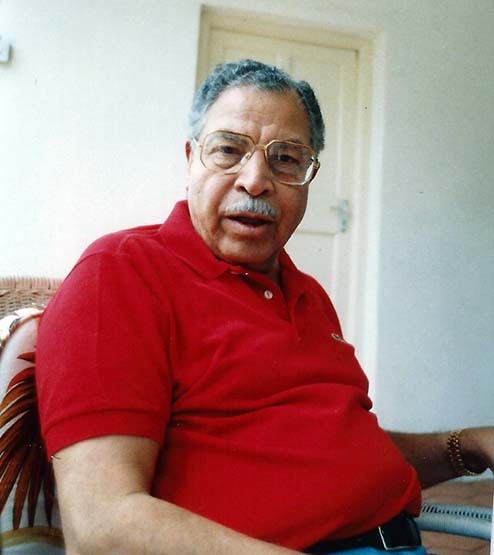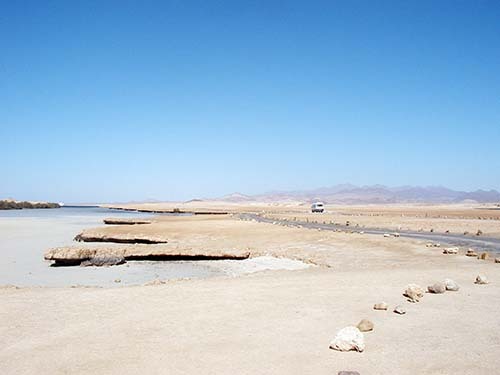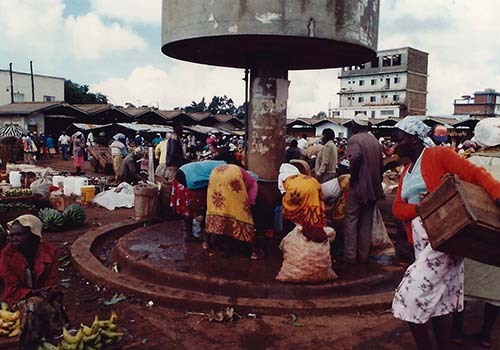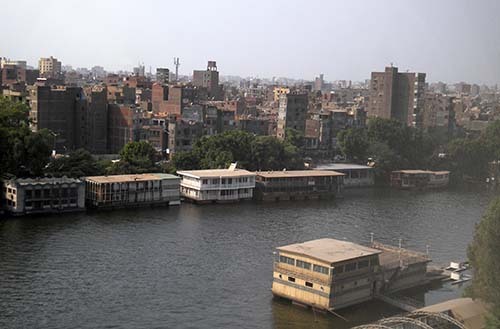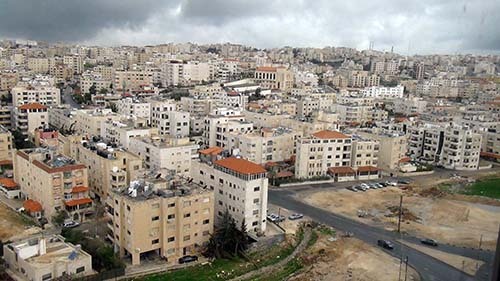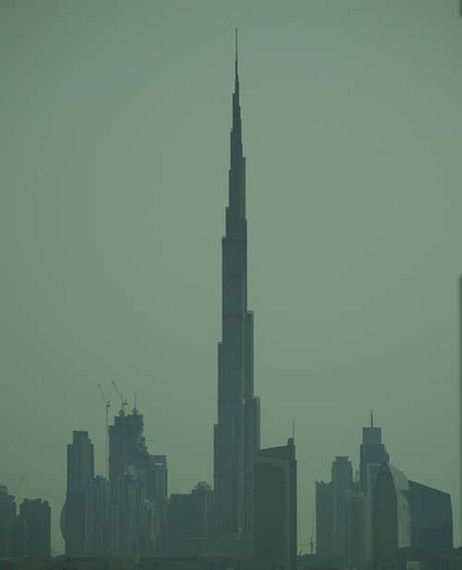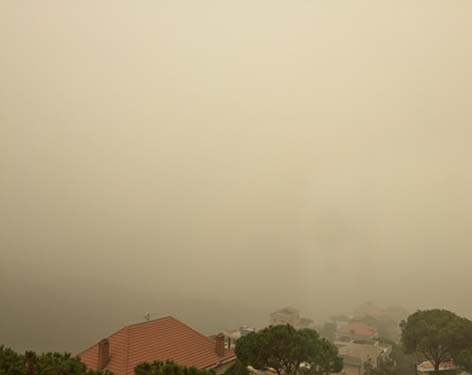The misuse of land, symptomatic of any Middle Eastern country with agricultural territory, as well as construction of roads, airports, housing, and prestige projects on arable stretches in several countries has been robbing terrain of valuable assets as foreseen by a very astute Egyptian scientist.
"We did not build the infrastructure for modern agricultural techniques like sprinkling or drip irrigation," Mostafa Tolba, the former executive director of the United Nations Environment Program (UNEP) who recently passed away in Geneva, told me in 1990.
He also noted that the use of traditional irrigation techniques leading to the loss of large amounts of water, water logging, and salinization, further contributed to lower productivity.
The Egyptian-born Tolba was quite a visionary. He saw problems on the horizon that would adversely affect "sustainable development" long before that phrase became the "cliché du jour."
"There's no easy solution," Tolba said of the water problems facing the Middle East, adding that agriculture was a non-competitive pursuit thanks to subsidies that help farmers in the West. "It adds to the incentive to misuse land for cash crops."
I was fascinated by his insights when I interviewed him in Nairobi during a 17-year tenure as UNEP's head and for which he was credited with championing the Montreal Protocol on Substances that Deplete the Ozone Layer.
Under his leadership Nairobi-based UNEP warned that disruptions from global warming - induced by the "greenhouse effect" - could lead to thermal expansion of the seas.
In the Nile Delta, rises in sea levels could flood one-fifth of Egypt's arable land, according to a study back then by UNEP and the U.S. Environmental Protection Agency (EPA).
UNEP scientists said that dry areas in the Middle East would become drier, speeding up land degradation, all of which has come to pass in many countries.
"What we're seeing and saying is that there's a potential for conflict in the Middle East and all over the world where there are shared water resources which are limited," he told me.
He also pointed to 214 rivers worldwide shared by two or more states with increasing need of water, adding to the problems of pollution.
Egypt shares the Nile River waters with Sudan and Ethiopia, the latter country having discussed dam projects for the Blue Nile with Israel from decades ago.
That prompted the Cairo government to dispatch then minister of state for foreign affairs Boutros Boutros-Ghali to Addis Ababa to seek reassurances from the Ethiopians.
Egypt is still worried about having its share of water from the river altered or hampered by Ethiopia and Sudan.
In the past, Egypt and Sudan have also sparred over the border region triangle of Halayeb between the two countries that is rich in manganese and about which I blogged in 2010.
The Jordan River - another over-utilized water resource - is accessible to Jordan, Israel and Syria with the latter two countries for years reportedly pumping more than their fair share, leaving Jordan increasingly high and dry.
Residents and visitors in Jordan are constantly urged to take it easy on water consumption.
Tolba told me the Euphrates River could easily spark a conflict involving Turkey, Syria and Iraq.
In January of that year Turkey diverted the river to fill up its Ataturk Dam, leaving its Arab neighbors with a trickle to irrigate their lands and generate power.
The Arab Gulf states were not immune to air and water pollution with acid fog plaguing countries along one of the busiest waterways and where a major chunk of the world's oil and gas industries reside, thereby contributing to an increase in pollutants.
"One of the issues we're talking about very seriously is how to expand the concept of national security to encompass environmental security," Tolba said with an eye to the future.
He wanted to end the uncontrolled movement of hazardous wastes that industrialized countries often dumped (and continue to dump) in developing countries, saying such refuse could be disposed of in its country of origin.
Underdevelopment, another contributor to environmental problems, is reflected in water-borne diseases caused by the lack of clean water in many of the region's countries, Tolba, a botanist with a Ph.D. from the University of London's Imperial College, explained.
Diseases such as bilharzia, a chronic ailment caused by tropical flatworm carried in water supplies, and infant diarrhea have taken a heavy toll on Egypt's rural population.
Tolba warned about water shortages, soil erosion, desertification, air and water pollution. He might as well have been talking about today's conflicts in many Arab countries that have also exacerbated matters.
In a tribute to Tolba, UNEP released a statement highlighting his countless accomplishments.
"We have lost a visionary leader and friend whose life and legacy have been truly exceptional. An accomplished scientist in his early professional years, Dr. Tolba led Egypt's delegation to the historic Stockholm Conference in 1972, hosted by the United Nations to forge a new global environmental agenda.
"His deep understanding of and commitment to the need for 'development without destruction' made a profound impact on the outcomes of the Conference, including the decision in Stockholm, to establish a new UN organization for the environment - the United Nations Environment Programme."
A tragi-comic paradox is that Tolba's passing garnered more attention in the West than his native Egypt where most newspapers barely spared a few lines to cover the news, wrote Baha'a El Din Youssef in London's Al Arab daily.

